The Best of Balinese Culture
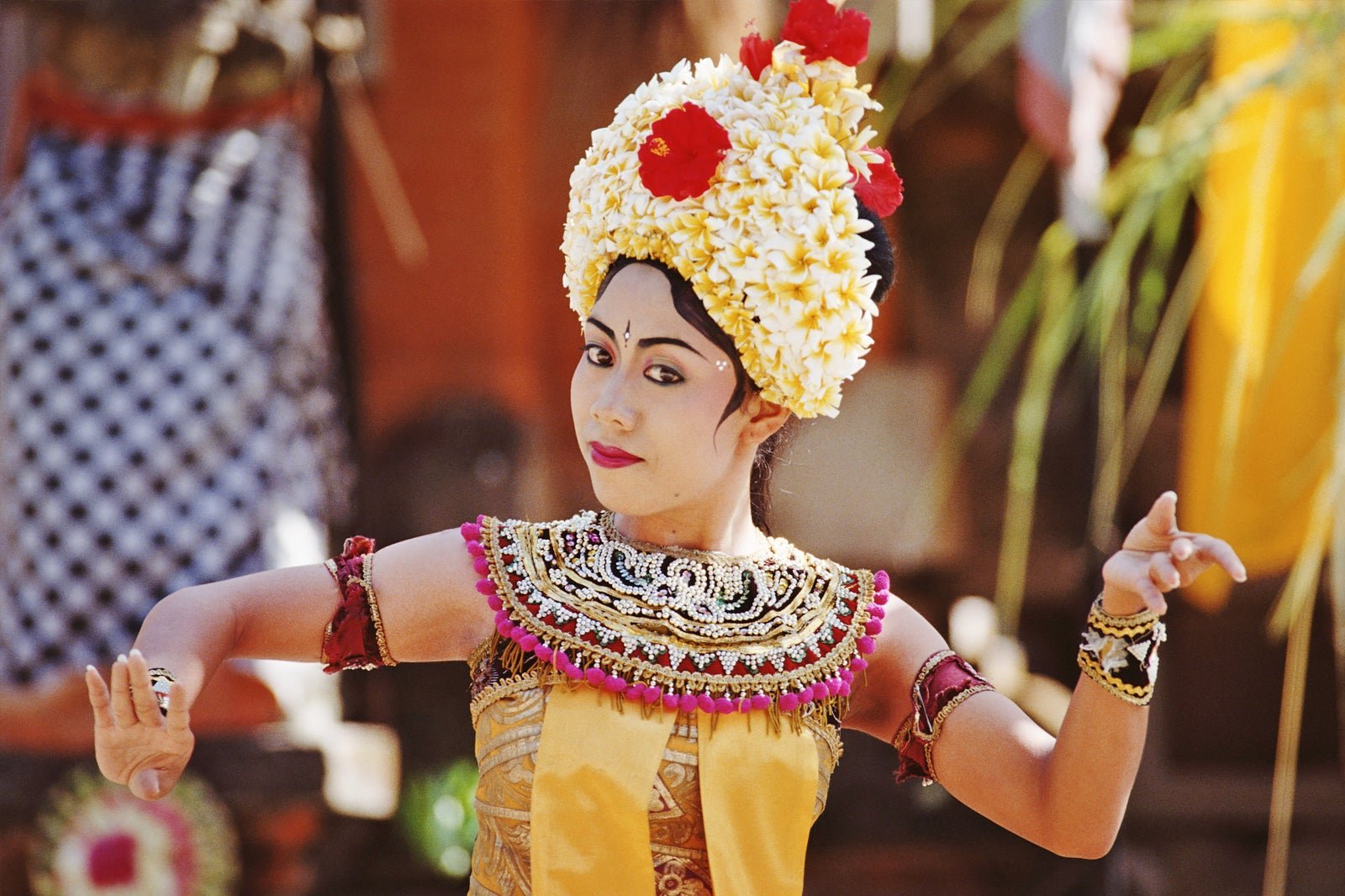
Things to do Where to Experience Bali’s Unique Art, Food, and Traditions
The Best of Balinese Culture. Bali is a cultural treasure trove where ancient traditions, vibrant arts, and spiritual practices are woven into the fabric of daily life. Whether you’re a first-time visitor or a seasoned traveler, Bali offers countless opportunities to immerse yourself in its rich cultural heritage. Here’s a guide to experiencing the best of Balinese culture through a variety of engaging activities.
Visit a Sacred Temple

Bali is often referred to as the “Island of a Thousand Temples,” and for good reason. The island is dotted with temples that are not only places of worship but also architectural marvels that reflect Bali’s unique blend of Hindu-Buddhist culture.
- Pura Besakih (Mother Temple): Located on the slopes of Mount Agung, Pura Besakih is Bali’s largest and most important temple complex. Known as the “Mother Temple,” it is a site of pilgrimage for Balinese Hindus and offers breathtaking views of the surrounding landscape. The temple’s intricate design and spiritual significance make it a must-visit.
- Pura Tanah Lot: Perched on a rocky outcrop in the sea, Tanah Lot is one of Bali’s most iconic temples. It is particularly famous for its stunning sunset views, where the temple appears silhouetted against the fiery sky. The temple is dedicated to the sea gods and is one of the most visited cultural sites in Bali.
- Pura Ulun Danu Beratan: Located on the shores of Lake Beratan in the mountainous region of Bedugul, this water temple is one of Bali’s most picturesque sites. The temple appears to float on the lake, creating a serene and mystical atmosphere. It is dedicated to the goddess of the lake, Dewi Danu, and is surrounded by lush gardens.
Try a Balinese Cooking Class
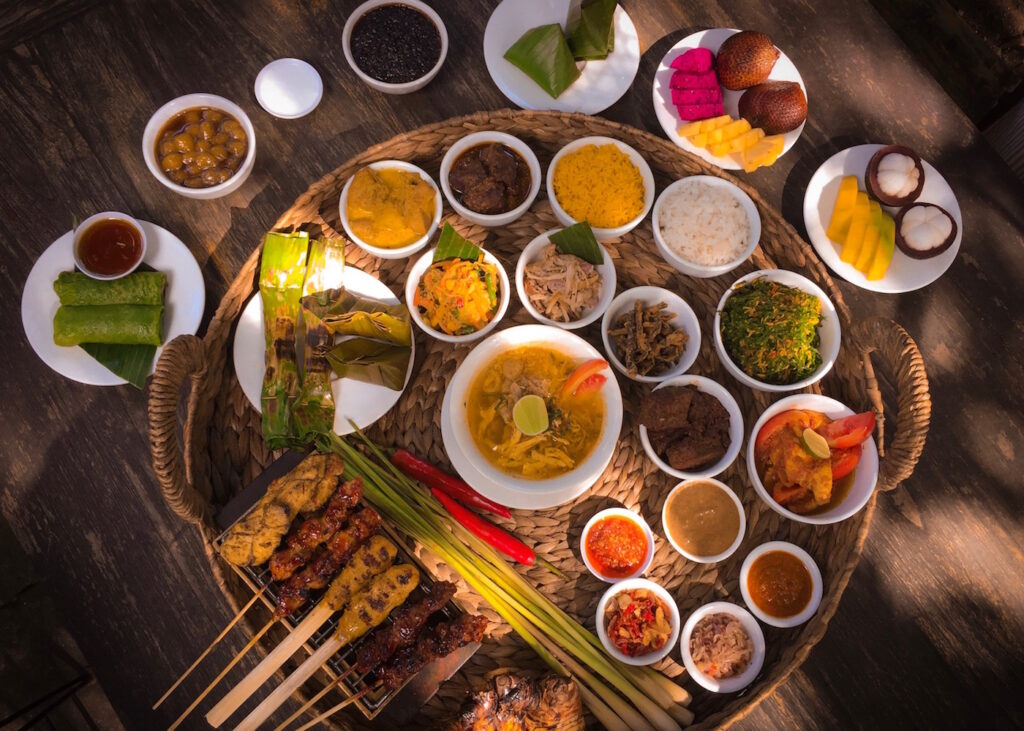
Balinese cuisine is a delightful fusion of fresh ingredients, aromatic spices, and traditional cooking techniques. Taking a cooking class is an excellent way to delve into the flavors and culinary heritage of the island.
Food is a big part of the Balinese lifestyle, so luckily for us sambal-aholics, the local communities are more than happy to welcome visitors into their homes to get a taste of authentic village cooking. There are now countless culinary adventure on the island that help to unlock the secrets to Bali’s totally addictive flavours, guiding you through local market to find traditional herbs, spices and farm-fresh ingredients, before demonstrating the lengthy preparation and cooking methods that sometimes take days to complete.
Get ready to get your hands dirty, because if you want to try the ever-succulent Ayam Betutu staple, you’ll soon find yourself rubbing and massaging a whole plucked chicken in basa gede (Bali’s signature base paste) before wrapping it in palm leaves and cooking it over coconut husks for hours until smokey and tender! With plenty of time to wait before you get to sample your delicious Balinese creation, the cooking classes often offer the chance to chat to the locals, make simple offerings, speak to the rice farmers and learn about authentic coconut-oil processing – until it’s time to dig in!
- Lobong Culinary Experience: This Ubud-based cooking school takes you into a traditional Balinese family compound, where you’ll learn about Balinese culture and culinary practices. The class covers a variety of dishes and includes insights into the role of food in Balinese rituals and ceremonies.
Scale the Island’s Iconic Landscapes

Bali’s diverse landscapes offer countless opportunities for adventure, from hiking active volcanoes to exploring lush rice terraces.
- Mount Batur Sunrise Trek: One of the most popular hikes in Bali, the Mount Batur trek offers a chance to witness a breathtaking sunrise from the summit of an active volcano. The trek begins in the early hours of the morning and takes about two hours to reach the top. The panoramic views of Lake Batur and the surrounding mountains are well worth the effort.
- Tegalalang Rice Terraces: Located near Ubud, the Tegalalang Rice Terraces are a UNESCO World Heritage site and a quintessential Balinese landscape. The terraces are beautifully sculpted into the hillsides, creating a stunning vista of lush green fields. Visitors can walk through the terraces and learn about traditional Balinese rice farming methods.
- Sekumpul Waterfall: Considered one of the most beautiful waterfalls in Bali, Sekumpul is located in the northern part of the island. The hike to the waterfall takes you through dense jungle, crossing rivers and navigating steep paths. The sight of the cascading water against the backdrop of lush vegetation is a reward in itself.
Watch a Traditional Dance Performance
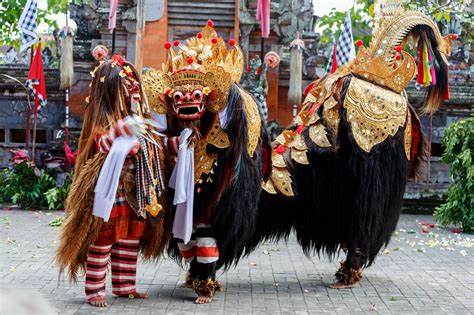
Balinese dance is a vibrant and expressive art form that is deeply intertwined with the island’s religious and cultural practices. Watching a traditional dance performance is a must-do experience in Bali.
- Legong Dance: The Legong Dance is one of Bali’s most classical and refined dance forms, characterized by intricate finger movements, expressive gestures, and elaborate costumes. Performances can be seen at Ubud Palace, where the dance is presented in its most authentic form.
- Barong and Kris Dance: The Barong Dance depicts the eternal battle between good and evil, represented by the lion-like creature Barong and the demon queen Rangda. This dance is both dramatic and spiritual, showcasing Bali’s deep-rooted belief in the balance of opposites.
- Kecak Dance at Uluwatu Temple: The Kecak Dance, also known as the “monkey chant,” is a unique performance that involves a large group of men chanting in unison while reenacting scenes from the Ramayana. The dance is performed at sunset at Uluwatu Temple, providing a stunning backdrop for this mesmerizing show.
Shop ’til You Drop at a Traditional Market
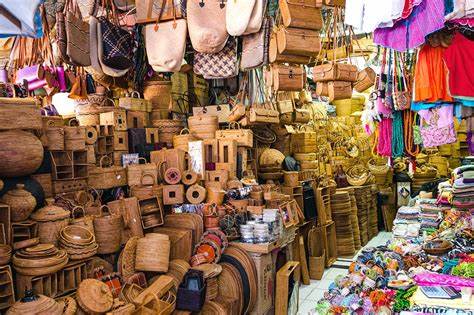
Exploring Bali’s traditional markets is a sensory experience where you can find everything from fresh produce to handcrafted souvenirs.
- Ubud Art Market: Located in the heart of Ubud, this market is a treasure trove of Balinese art, textiles, and handicrafts. You can find intricate wood carvings, handwoven baskets, colorful sarongs, and silver jewelry. The market is also a great place to practice your bargaining skills.
- Badung Market: As Bali’s largest traditional market, Badung Market in Denpasar offers an authentic shopping experience. It’s a place where locals come to buy their daily essentials, and visitors can explore the vast array of fresh fruits, spices, flowers, and traditional snacks.
- Sukawati Art Market: One of Bali’s oldest art markets, Sukawati is known for its wide selection of handicrafts, paintings, and textiles. The market is particularly famous for its affordable prices, making it a great place to pick up unique Balinese souvenirs.
Pamper Yourself with Age-Old Beauty Treatments
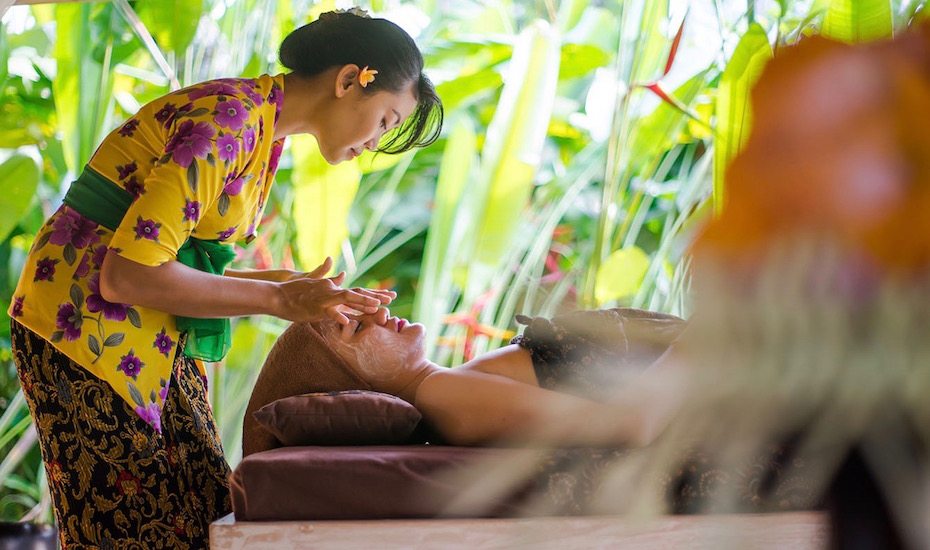
Balinese beauty treatments are deeply rooted in traditional herbal remedies and natural ingredients, offering a holistic approach to wellness.
- Balinese Massage: A Balinese massage is a deeply relaxing experience that combines acupressure, reflexology, and aromatherapy. Spas across Bali offer this traditional treatment, often using locally sourced oils infused with herbs and spices. The massage helps relieve stress, improve circulation, and restore balance to the body.
- Jamu Wellness Rituals: Jamu is a traditional herbal medicine made from natural ingredients like turmeric, ginger, and tamarind. Many spas in Bali offer Jamu wellness rituals that include body scrubs, wraps, and massages using Jamu-based products. These treatments are designed to detoxify, rejuvenate, and enhance overall well-being.
- Flower Baths: A flower bath is a luxurious Balinese ritual where you soak in a tub filled with fragrant petals and essential oils. This treatment is not only soothing but also deeply symbolic, as flowers are considered sacred in Balinese culture.
Discover the Power of Balinese Healing
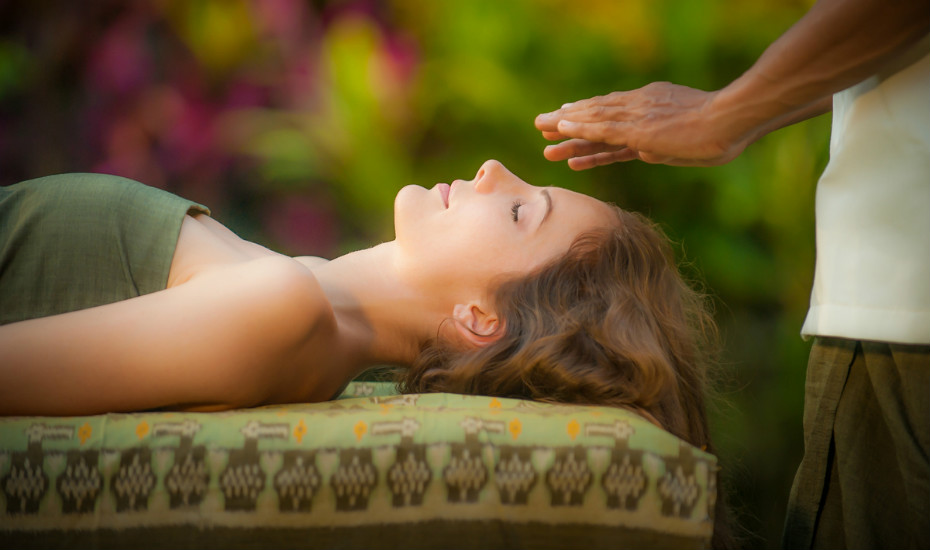
Balinese healing practices are deeply connected to the island’s spiritual beliefs, emphasizing harmony between mind, body, and spirit.
- Traditional Balinese Healers (Balian): Bali is home to many traditional healers, known as Balian, who use a combination of herbal medicine, energy work, and spiritual guidance to treat various ailments. Visiting a Balian offers insight into the island’s ancient healing traditions and provides a unique perspective on wellness.
- Sound Healing: Sound healing is a therapeutic practice that uses vibrations from instruments like gongs, singing bowls, and drums to promote relaxation and healing. In Ubud, you can find several centers offering sound healing sessions that are both rejuvenating and spiritually uplifting.
- Yoga and Meditation Retreats: Bali is a global hub for yoga and meditation, with numerous retreats offering programs that combine physical practice with spiritual growth. These retreats often incorporate elements of Balinese healing, such as energy clearing and chakra balancing, to create a holistic experience.
Stick Around for a Ceremony
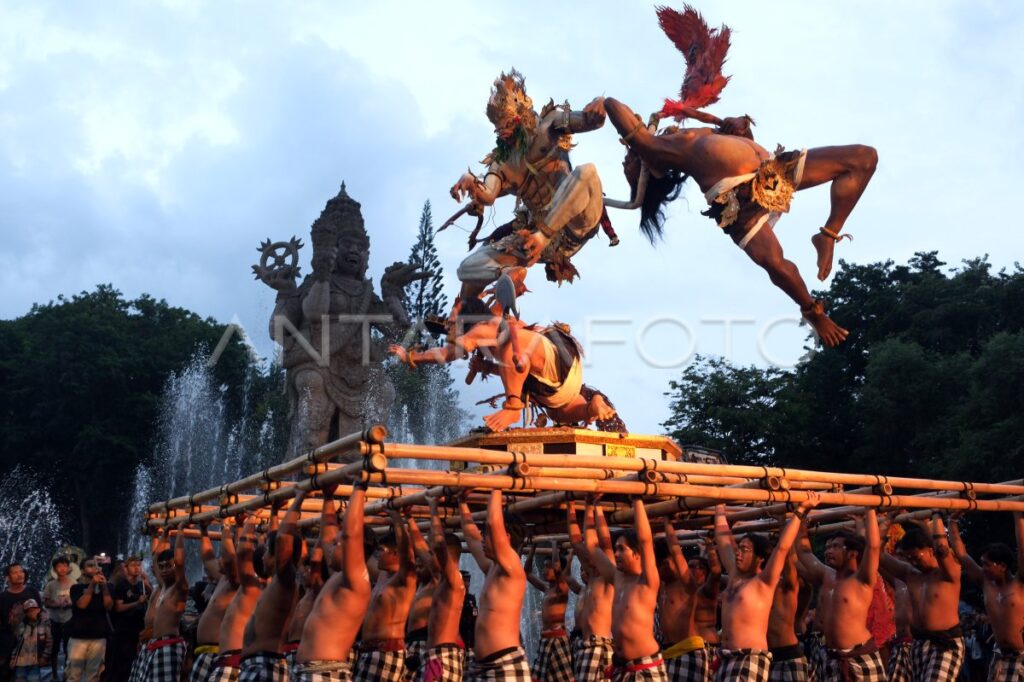
Bali is a land of ceremonies, where rituals and offerings are a daily occurrence. Participating in or observing a ceremony is a profound way to experience Balinese spirituality.
- Odalan: An Odalan is a temple anniversary, celebrated with ceremonies that can last several days. Each temple in Bali has its own Odalan, which occurs every 210 days according to the Balinese calendar. Attending an Odalan allows you to witness the deep connection between the Balinese people and their deities.
- Nyepi (Day of Silence): Nyepi is Bali’s New Year, observed with a day of silence, fasting, and meditation. The entire island shuts down, including the airport, and everyone is expected to stay indoors. The day before Nyepi, villages hold vibrant Ogoh-Ogoh parades, where large papier-mâché effigies of demons are carried through the streets to drive away evil spirits.
Try a Water Purification Ritual
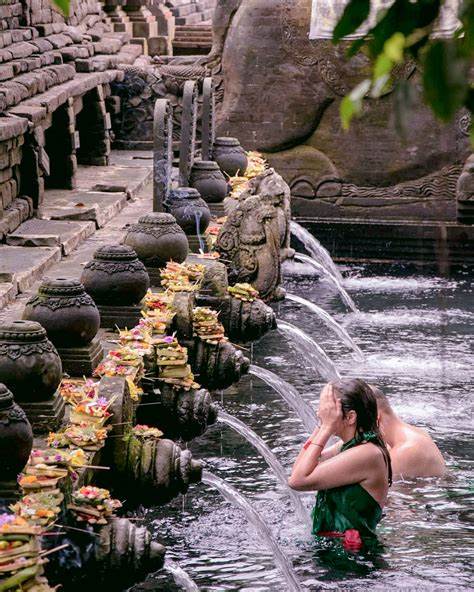
Water purification, or Melukat, is a sacred Balinese ritual performed to cleanse the body, mind, and spirit.
- Tirta Empul: The holy spring of Tirta Empul, located near Ubud, is one of the most famous places to experience a water purification ritual. The temple’s sacred pools are fed by natural springs, and worshippers wade through the water, moving from fountain to fountain to cleanse themselves. The ritual is deeply spiritual, offering a sense of renewal and purification
Learn the Secrets Behind Bali’s Stunning Arts
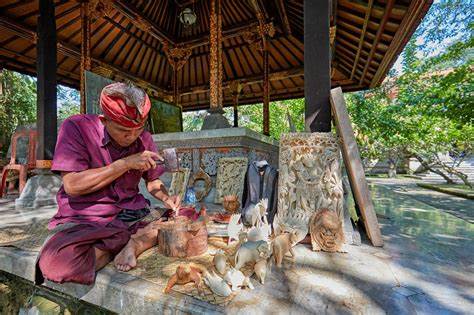
Bali’s art forms are as diverse as they are beautiful, with a rich tradition of painting, sculpture, and textile weaving.
- Ubud Art Workshops: Ubud is the artistic heart of Bali, home to numerous workshops where you can learn traditional Balinese crafts. Try your hand at batik painting, wood carving, or silver jewelry making under the guidance of skilled local artisans.
- Museum Puri Lukisan: Located in Ubud, this museum is dedicated to preserving and showcasing Balinese art. It features a vast collection of traditional and contemporary Balinese paintings, offering insight into the island’s artistic heritage.
- Tenganan Village: Located in East Bali, Tenganan is a traditional Balinese village known for its unique double ikat weaving technique, called “Geringsing.” Visitors to Tenganan can observe the intricate process of weaving these sacred textiles, which are believed to have protective qualities.
Get a Taste of Balinese Traditions at a Cultural Evening
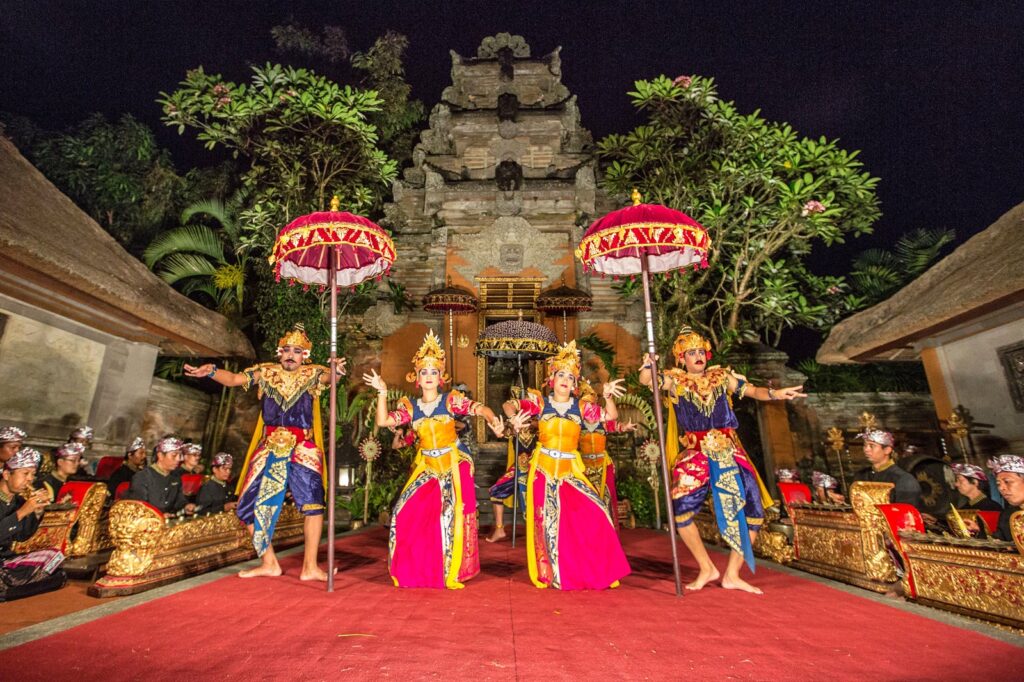
For a comprehensive cultural experience, attending a Balinese Cultural Evening is a must.
- Many venues in Ubud offer cultural evenings that combine traditional dance performances, music, and a feast of Balinese cuisine. These events provide a well-rounded introduction to Balinese culture, with performances of Legong, Barong, and Kecak dances, accompanied by a Gamelan orchestra.
- Many high-end resorts in Bali offer cultural evenings as part of their guest experience. These events often include traditional music and dance performances, along with opportunities to participate in activities like flower offering making or Balinese cooking demonstrations
Bali is an island where culture is not just preserved but lived and celebrated every day. From visiting sacred temples and taking part in cooking classes to exploring the island’s iconic landscapes and engaging in traditional ceremonies, there’s no shortage of ways to immerse yourself in the rich cultural tapestry of Bali. Each experience offers a deeper understanding of the island’s heritage, spirituality, and the unique way of life that makes Bali one of the most enchanting destinations in the world. Whether you’re seeking adventure, relaxation, or spiritual enlightenment, Bali’s cultural offerings provide something for every traveler to cherish.


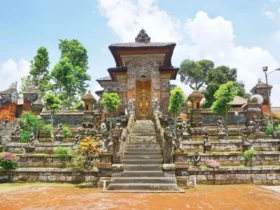


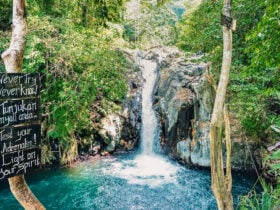




Leave a Review